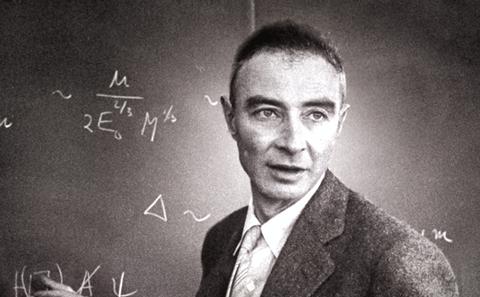'Inside the Centre: The Life of J. Robert Oppenheimer' Event

For more information regarding this event, please email Tracy Storey at tps@southampton.ac.uk .
Event details
A lecture and book launch for Professor Ray Monk's new publication.
This lecture attempts to tell the story of Oppenheimer's life in the context of the momentous developments - social, political and scientific - in which he played a leading part. It begins with an account of the German Jewish community in New York in which he was brought up in the first decades of the twentieth century and then describes his progress as a student, first at Harvard, then at Cambridge and Goettingen, during the years in which quantum mechanics was being developed by Heisenberg, Born, Dirac and others, most of whom were either teachers or fellow students of Oppenheimer's. Oppenheimer's ambition was to use the knowledge he had acquired in Europe to establish a world centre for theoretical physics in the USA, and this is precisely what he did in the 1930s at Berkeley. That decade ended with his most important contribution to physics: his anticipation of black holes, for which, had he lived a little longer, he would almost certainly have been awarded the Nobel Prize. During the 1930s Oppenheimer threw himself into left-wing politics, which made him an extremely unlikely choice to direct the laboratory in Los Alamos that produced the world's first atomic bomb. The lecture describes that work and also his attempts after the war to secure international control over atomic energy. Oppenheimer's determination to pursue ways of establishing international peace and his opposition to the hydrogen bomb made him the target of McCarthyites and in 1954 he was the subject of a security hearing that stripped him of his security clearance. After that, he was a broken man, although by the time he died in 1967 his reputation - as a scientist, a statesman and a loyal US citizen - had been well and truly re-established.
Speaker information
Professor Ray Monk,Professor in Philosophy